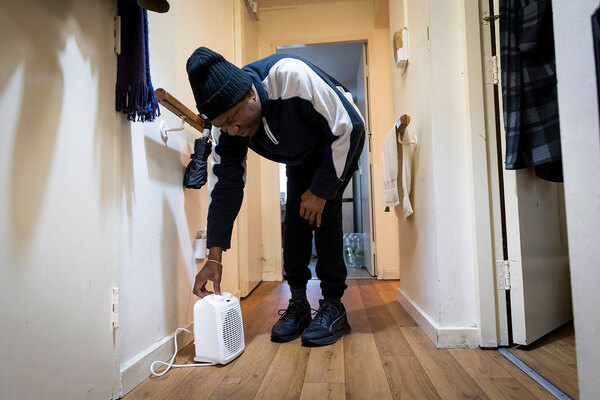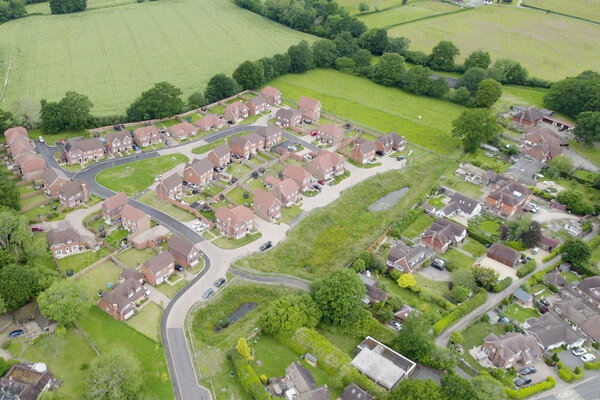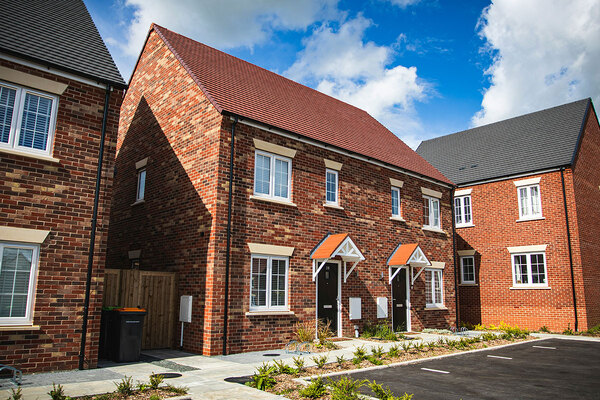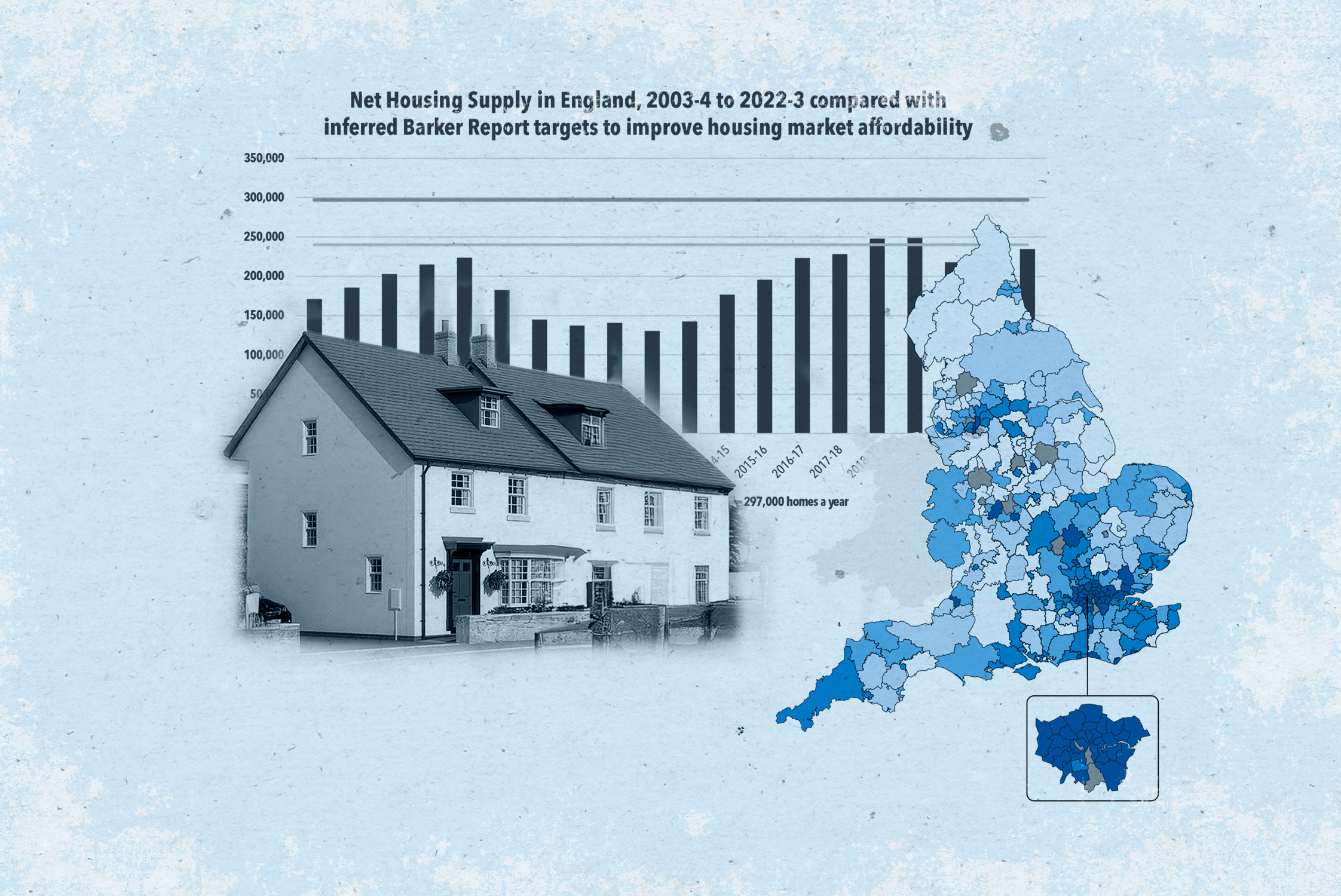You are viewing 1 of your 1 free articles
Budget allocations ‘insufficient’ to meet statutory homelessness obligations, NIHE says
The level of funding allocated to the Northern Ireland Housing Executive (NIHE) in the Budget is “insufficient” to meet statutory homelessness obligations and will reduce the number of social homes being built “significantly”, the body has said.
Responding to the Department for Communities (DfC)’s Budget 2024-25 equality impact assessment, the Housing Executive said the level of funding for homelessness services is “insufficient to meet statutory obligations to provide temporary accommodation based on projected demand”.
This is because the Social Housing Development Programme will only be able to deliver around 400 new social homes in 2024-25, significantly below the target of 2,000.
“This is the largest projected drop in social housing output of its kind in a generation, at a time when housing need is at its most acute.
“More households will therefore be waiting longer for permanent housing, and many will have to remain in expensive temporary accommodation,” the NIHE said.
The DfC capital budget was cut by 38% in the Northern Ireland budget.
The budget, approved by the executive, allocated the DfC £133m in capital funding for 2024-25, down from £216m last year. The capital budget for the department, which is responsible for housing, funds the Social Housing Development Programme.
In June, officials revealed to the communities committee that there will only be enough funding for a maximum of 400 social housing starts this year.
Housing and homelessness bodies in the country previously outlined their “grave concerns” over the cuts to the first and deputy first minister.
The DfC is currently consulting on the Budget allocations.
In its response, the Housing Executive said it is “acutely aware of the strategic public finance challenges for Northern Ireland” and, “in particular, the financial constraints facing the DfC to continue to deliver critical public services”.
However, it said its view is that the indicative allocations as set out by the DfC “will have an adverse impact across those already experiencing housing need and housing inequality particularly those who are homeless, those living in fuel poverty and energy inefficient housing, and those in need of housing support services to live independently”.
The NIHE said: “Furthermore, it is our view that the implications of the indicative allocations will be felt beyond the budget for DFC; reductions in grants for low-income households living in the private sector are likely to have a material and immediate impact on health budgets.
“The draft budget poses significant risks for a number of strategic programmes and services, either delivered by the Housing Executive or in partnership with organisations across the housing sector. It will lead to cuts in services, as early as October 2024.
“The level of funding for homelessness services is insufficient to meet statutory obligations to provide temporary accommodation based on projected demand.”
The NIHE said that wrap-around and homelessness prevention services, which are currently provided by voluntary and community organisations, will have to be “greatly reduced”.
The proposed budget represents a “significant reduction” of £6.8m for the Affordable Warmth Scheme, resulting in a 53% cut in the number of households in fuel poverty (1,465) availing of the scheme compared with 2023-24.
It said that the indicative allocation of £80.7m for the Supporting People Programme prevents the full roll-out of the Supporting People Strategy and the Providers Innovation Fund.
The Housing Executive is currently overhauling its social housing allocation processes, with the aim of creating a “better, more efficient service for people in housing need”.
However, the 85,000-home landlord said the review “faces significant funding uncertainty, as there is currently no budget set aside for this programme”.
Alongside this, the Housing Executive’s bid to meet staff costs for the provision of strategic housing authority services and programmes was “not met”.
“As the Housing Executive is currently carrying considerable vacancies in some teams, most obviously in our housing solutions team, this reduction in allocation for housing staff will impact on our ability to provide homelessness services, management and oversight of the Supporting People Programme,” it said.
The NIHE believes the allocated budget “does not allow for contingency planning for emergency situations” that could lead to increases in homelessness, for example extreme weather events.
It also fails to reflect rising demand for temporary accommodation due to the recent increase in the number of households being awarded refugee status and requiring housing in Northern Ireland.
“The ability to enable systemic change to housing services and housing supply is greatly undermined, and this will have a material impact on our ability to commence work delivering a future Housing Strategy for Northern Ireland,” the NIHE added.
It said that in summary, “any reduction in the housing budget equates to a reduction in our ability to address the housing inequalities as well as health, social and economic inequalities that exist in Northern Ireland”.
The DfC and the Northern Ireland Executive have been contacted for comment.
Sign up for our Northern Ireland bulletin
Already have an account? Click here to manage your newsletters












